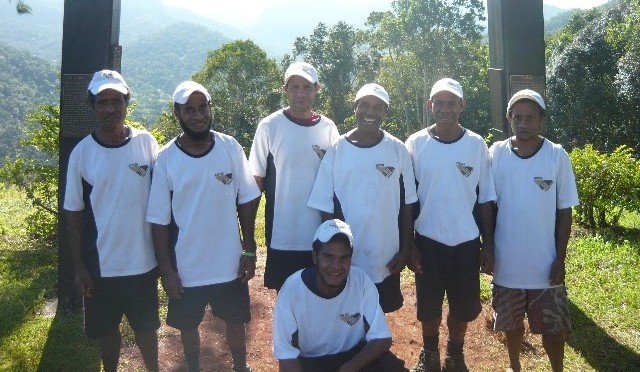
, news editor, Adventist Review
You’ve heard about travel excursions that cater to Seventh-day Adventist tourists.
But what is a tour operator to do if all the villages along its route are inhabited by Adventists?
Ask the tourists to join the villagers in resting on the Sabbath, of course.
The number of Adventist believers is growing in Papua New Guinea, adding a new sort of challenge to the 60-mile (96-kilometer) Kokoda Track that allows adventurous tourists to experience a significant moment in World War II history.
Tourists who wish to make the strenuous one- to two-week trek through jungles, rivers, and mountains find it perplexing to pass through local villages on Saturdays and not be able to find anyone willing to sell them food, drink, or a place to sleep.
At the same time, the mainly Adventist villagers face the double dilemma of finding a way to show Christ’s love to strangers while keeping a tourism job that allows them to observe Sabbath.
“Their hospitality is put to the test every Sabbath when commercial tour groups pass through their village wanting food, accommodation and a cultural experience,” the South Pacific Adventist Record reported. “As well as this, Adventists find it difficult to find work as guides or porters for companies that expect them to work on Sabbath.”
Four Adventist brothers from the village of Manari, located along the trail, explained this quandary in a conversation with two trekkers, brothers Wayne and Craig Sneddon from Central Coast, a city in New South Wales, Australia.
As a result, Kokoda Friendship Tours was born.

The trekkers are offered an experience that is the flipside of the ocean cruises and Bible land tours organized for groups of Adventist tourists. In this case, it’s the natives — not the tourists — who are all Adventist.
Papua New Guinea’s Kokoda Track is especially popular among Australians, with a growing number every year making the grueling hike along a trail where Allied forces, mostly from Australia, fought a series of battles against Japanese troops in 1942.
Kokoda Friendship Tours, which says it is not religious, tells trekkers up front that their group of eight to 12 people plus their guides will be resting on Saturdays.
“Like other tour companies, we give back to the local villages by helping them with education and hospitals, but our point of difference is that we recognize and respect the importance of religion to the people, who are Seventh-day Adventists,” it says on its website. “We help the villages with their churches, which is so important to them.”
The daylong stop in Manari falls right in the middle of the 10-day trek.
“We have a rest day on the Sabbath (Saturday), which is where you will hear the wartime stories from the son of a Fuzzy Wuzzy and get to spend the day with the villagers,” the company says. “They will cook a feast and sing for you that night.”
A non-church member tells the wartime stories.
The four Adventist brothers — Joe Elodo, team leader; and his brothers Jerry, head guide; Silva, a guide and cook; and Tony, operations manager — take the day off to worship in their home church in Manari.
Around 10 percent of Papua New Guineans identify themselves as Adventist, according to the country’s last national census in 2000. The Adventist Church’s official 2015 statistics, however, put the number of members at about 240,200, or 3.4 percent of the country’s population of 7 million.
While the Adventist-friendly trek is relatively new, non-Adventist tourists seem to be warming up to the idea of a mandatory Sabbath rest.
“The rest day in the Menari village was so good, and the talk by the son of a Fuzzy Wuzzy was so humbling,” Brian Anderson, a trekker from Central Coast, Australia, wrote on the tour company’s website.